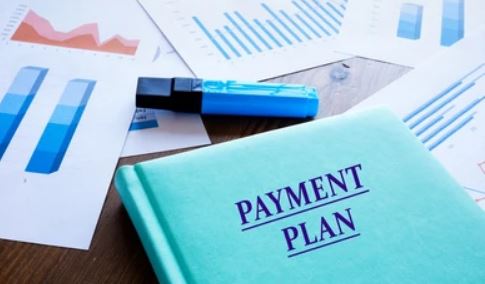When buying property in the UAE, many buyers get confused between Mortgage vs Payment Plans. Each option has its own advantages and drawbacks, and the best choice depends on your financial situation, long-term plans, and the type of property you’re interested in. Understanding the key differences can make a big difference in your investment journey. In this guide, I will explain the differences between a mortgage and a payment plan to help you decide which option is better for you.
Comparing Mortgage vs Payment Plans
What is a Mortgage?

A mortgage is a loan taken from a bank or lender to buy property. With this arrangement, you borrow a large sum of money and then make monthly payments, typically over a period of 15 to 30 years, until the loan is repaid. Mortgages have become the most popular financing option for property buyers due to their long-term payment structure and the opportunity to build equity in the home.
Key Features of Mortgages:
- Down Payment: Most buyers in the UAE require an initial down payment for a mortgage. Expatriates typically need to pay around 20% of the property’s price, while UAE nationals often require 15%.
- Interest Rates: Mortgages come with interest, the cost of borrowing money. This can be either a fixed or variable rate. A fixed-rate mortgage keeps your monthly payments consistent, while a variable-rate mortgage may change based on market conditions, affecting your payments.
- Monthly Payments: Every month, your mortgage payment consists of a portion of the loan amount (the principal) and interest.
- Building Equity: You gain more ownership of the property and gradually build equity with each payment you make.
Pros of Mortgages:
- Lower Monthly Payments: By spreading payments over many years, mortgages make monthly costs more manageable.
- Builds Equity: Gradually own more of your home with each payment, contributing to long-term financial security.
- Predictability: Fixed-rate mortgages allow you to plan ahead with predictable payments.
Cons of Mortgages:
- High Upfront Costs: A significant down payment and additional fees may be required.
- Approval Process: Approval depends on meeting strict financial conditions, such as minimum salary, employment history, and creditworthiness.
- Interest Payments: Interest can greatly increase the total cost of the loan over time.
Example: If you wish to buy a home in Dubai, you must make a down payment and prepare all necessary documents for a mortgage application with a bank. Once your application is approved, you’ll make monthly payments over a long term (e.g., 25 years), gradually gaining full ownership of the property.
What is a Payment Plan?

A payment plan is a direct financing option often offered by developers, especially for off-plan (under-construction) properties. Instead of obtaining a loan from a bank, you make structured payments directly to the developer over a set schedule. This approach is popular for buyers who want to avoid the complexities of a bank loan or those looking for more flexible, shorter-term payment options.
Key Features of Payment Plans:
- Lower Initial Costs: Payment plans usually have a lower initial down payment compared to mortgages, sometimes as low as 10%.
- Shorter Payment Terms: Unlike mortgages, payment plans are typically shorter, often spanning from two to ten years.
- No Interest Charges: Paying directly to the developer means there is no further interest cost.
- Flexible Installments: Payments are tied to key stages of the construction process and can include before and after you move in.
Pros of Payment Plans:
- Lower Entry Barriers: Lower down payments make property ownership accessible to more buyers.
- No Interest Costs: Payments do not include interest, leading to a more transparent cost structure.
- Simplified Process: Direct payments to the developer simplify the buying process without dealing with banks or lenders.
Cons of Payment Plans:
- Shorter Repayment Period: Shorter terms can mean higher monthly payments, which can burden finances.
- Dependence on Construction Progress: Payments are often linked to construction milestones, and delays can cause complications.
- No Immediate Equity Building: Unlike mortgages, you only fully own the property after completing all payments.
With a payment plan, you might start with a 10% down payment, then make payments as the property is built. You may continue paying over a few years after moving in.
Comparing Mortgage vs Payment Plans

1. Flexibility and Long-Term Goals
Mortgages offer stability and predictable payments, making them ideal for those looking to stay in their home for the long term. You gradually build equity, meaning that as you pay off the loan, you own more of your home. This is great for long-term financial security.
On the other hand, payment plans are well-suited for buyers who want more flexibility during the construction phase. They work particularly well for off-plan projects and those who don’t want to commit to a long-term mortgage. However, the shorter payment term can create higher financial pressure.
2. Upfront Costs and Monthly Payments
Mortgages typically require a higher down payment but allow for lower monthly payments spread over many years, making them manageable for most buyers. Payment plans, however, often have lower initial costs but require larger monthly installments due to the shorter repayment term.
3. Market Conditions
Market trends and interest rates can influence which option makes more sense. For instance, when interest rates are low, mortgages become more attractive as they allow for stable, predictable payments. When interest rates rise, buyers might lean towards payment plans to avoid long-term interest charges.
4. Total Cost Consideration
Mortgages involve paying interest, which increases the total cost of the property over time. Payment plans often have no interest, but the overall price may be higher since developers offset risks. It’s essential to calculate and compare the total cost of both options, including hidden fees, interest, and any additional charges.
5. Additional Costs to Consider
With mortgages, additional costs like property registration, taxes, homeowners insurance, and closing fees are typically bundled into monthly payments or paid separately. Payment plans may have fewer associated fees but require budgeting for other post-purchase expenses, such as maintenance and homeowners association (HOA) fees.
Choosing the Right Option for You
If you are wondering about Mortgage vs payment plans, which is better for you? Here are some key factors to consider:
- Financial Stability: If you have a steady income and can afford a larger down payment, a mortgage offers long-term benefits and stability. However, if you prefer lower upfront costs, a payment plan may be more suitable.
- Long-Term Goals: Mortgages are ideal if you plan to stay in the property for years and want to build equity. If you value flexibility and a shorter commitment, consider a payment plan.
- Market Conditions: Pay attention to interest rates and real estate trends to determine which option best suits your financial needs.
FAQs
Is it better to pay off a mortgage or make payments?
This depends on your financial goals. Paying off a mortgage early reduces interest payments and offers peace of mind, but making regular payments helps keep cash available for other investments.
Choosing between a mortgage and a payment plan depends on your financial goals, lifestyle, and the current market environment. Mortgages provide stability, long-term equity building, and predictable monthly payments. Payment plans offer flexibility, no interest, and simplified processes during construction. Assess your needs, financial situation, and long-term plans before deciding.
If you’re looking to buy or sell property in Dubai, visit Time Homes Real Estate, the most trusted real estate agency in the UAE. For more insights and updates on the UAE’s dynamic real estate market, make sure to read Time Homes Real Estate’s blog.










